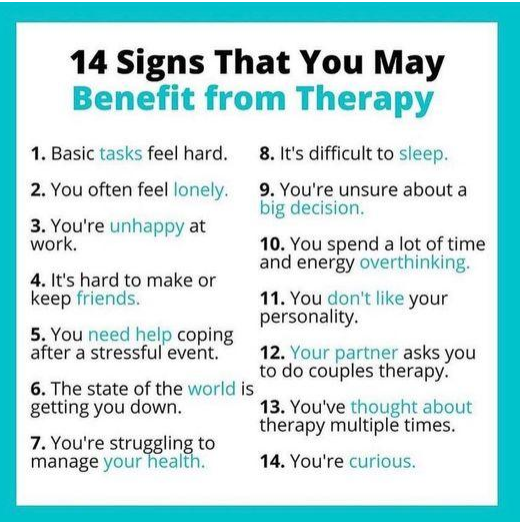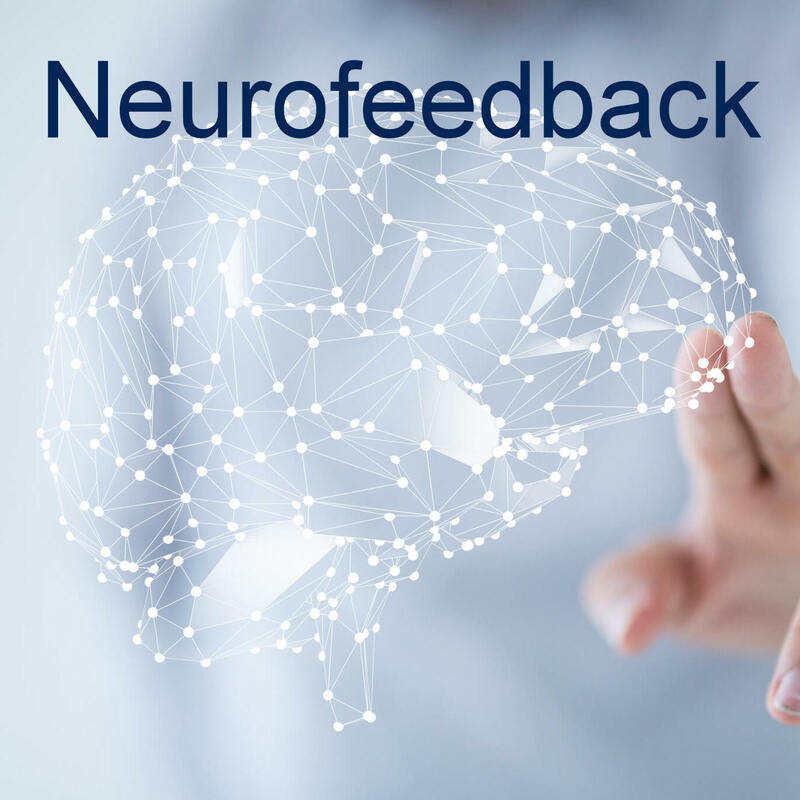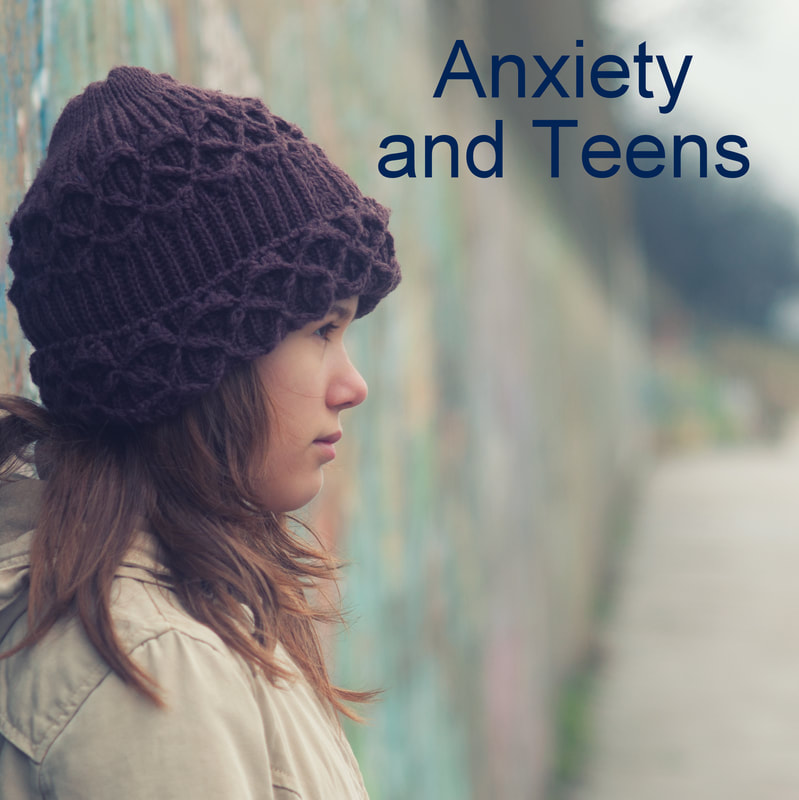|
by Marisa Columbi, MHC Intern If you find yourself asking this question, the answer more frequently than not is YES! The truth is everyone can benefit from therapy, but when is it time to seek professional help? Everyone experiences some kind of emotional distress or difficulty dealing with tough situations at some point in their life, and I can guarantee it won’t happen just once. Life throws obstacles at you at any age, whether it be work stress, problems with your relationships, loss, financial issues and so much more. In some cases, you can work through these difficulties without outside help, and at other times you may need a little support. If you are experiencing one or more of the following criteria, you may want to consider reaching out to a therapist: Some examples of the above include: 1: Basic tasks feel hard - getting out of bed, keeping up with hygiene, feeling productive at work, etc. 2: You often feel lonely- this can be taken as not having family or friends to be around or it can mean you are surrounded by so many people but still feel alone in the room 3: You’re unhappy at work - you lost the love you once had for your profession, you no longer are motivated to go, you have lost interest in interacting with coworkers, etc. 4: It’s hard to make or keep friends- you don’t see your friends anymore or feel the need to go out and do things with them, you keep to yourself and find it hard to put yourself out there to join new groups, etc. 5: You need help coping after a stressful event- you have a hard time coming to terms with what has happened and leaving it in the past, you can’t seem to recover or come down from the intensity an event has caused 6: The state of the world is getting you down- this can refer to things going on in your community, economics, politics, etc., finding yourself constantly disappointed in society and how the world is today  7: You’re struggling to manage your mental health- you find that your thoughts and behaviors interfer with your every day life, you are constantly feeling nervous, worried, depressed, overstimulated, etc. 8: It’s difficult to sleep- you have a hard time falling asleep at night, you feel tired during the day but are left awake when it is time to go to sleep 9: You’re unsure about a big decision- in regards to work, relationships, friendships, new opportunities, moving homes, changing careers, etc., making this big decision is causing you distress and you are having difficulty making an affirmative decision 10: You spend a lot of time and energy overthinking - worrying about things that could happen, or overthinking about the way you should have handled a situation, thinking about the worst case scenario, wondering constantly about what others are perceiving you as, etc. 11: You don’t like your personality - you find yourself questioning the kind of person you currently are and thinking about how you want to change for the better (how you treat others, what you value, what others have to say about your character) 12: Your partner asks you to do couples therapy- this means that your partner values you and the relationship and wants to work on it to make it one that lasts forever and is filled with love, communication, understanding, and compassion. 13: You’ve though about therapy multiple times - if you continuously find yourself thinking about what therapy can do for you and if you should try it, TRY IT. There is no harm in reaching out and seeing how a counselor can benefit you and your needs. 14: You’re curious - if you are curious about what happens during a session and generally want to know what therapy is about, contact us, we will be happy to answer any questions and get you started! Of course, it is difficult to narrow down the reasons to seek out therapy, but these 14 signs are a great start and can get your foot in the door of mental health. There are so many benefits to therapy, that a lot of people aren’t aware of. Self-awareness, communication skills, coping strategies, problem-solving, obtaining healthy support, improving relationships, stopping negative patterns and habits, the list goes on and on. Therapy is not only for severe mental illness, it helps different individuals cope with everyday life stressors and tough emotions, and allows us to get a better grasp on who we are.
Just remember, asking for help is a sign of strength, not weakness. This can be the brave first step that launches you into an amazing journey. One that will lead you to the best version of yourself! There is someone waiting to work with you, make the call and sign up for your first session!
0 Comments
Leave a Reply. |
Archives
October 2023
Categories
All
|




















